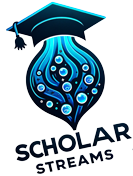In the ever evolving landscape of education, developing critical thinking skills in students is paramount. As educators and mentors, the goal is not only to impart knowledge but also to cultivate minds capable of independent analysis, problem-solving, and innovative thinking. Critical thinking involves the ability to think clearly and rationally, understanding the logical connection between ideas. This article explores effective activities and techniques designed to foster critical thinking skills, enabling students to engage in deeper analysis and become more discerning learners.
Embrace Socratic Questioning
The Socratic method, characterized by asking and answering questions to stimulate critical thinking and illuminate ideas, is a powerful tool in the educator’s arsenal. By posing challenging, open-ended questions, educators can encourage students to explore underlying assumptions, recognize biases, and consider alternative perspectives. Example questions include, “What evidence supports this claim?” or “How does this concept apply in a different context?”
Techniques:
- Encourage students to question the material, the sources, and even the questions themselves.
- Facilitate group discussions where students can debate and question each other’s viewpoints.
Implement Problem-Based Learning (PBL)
Problem-Based Learning is an educational approach that gives students complex, real-world problems to solve. This method forces students to apply critical thinking skills to gather and analyze relevant information, develop viable solutions, and justify their choices. PBL fosters not only critical thinking but also collaborative skills and self-directed learning.
Techniques:
- Design projects that are relevant to the students’ lives or future professions.
- Guide students to research and explore various solutions, encouraging reflection on their learning process.
Analyze Case Studies
Case studies provide a rich source for critical analysis, requiring students to examine scenarios, identify problems, and consider multiple solutions. By analyzing case studies, students can practice applying theoretical knowledge to real-world situations, enhancing their analytical skills and decision-making abilities.
Techniques:
- Select case studies that are complex and multifaceted, allowing for deep analysis and discussion.
- Encourage students to identify not just solutions but also potential pitfalls and ethical considerations.
Encourage Reflective Writing
Reflective writing tasks require students to summarize information, analyze their own understanding, and reflect on their learning process. This type of writing promotes self-awareness and critical thinking as students evaluate their assumptions, identify gaps in their knowledge, and consider how they can apply what they have learned.
Techniques:
- Assign reflective essays or journals where students can document their learning journey.
- Provide prompts that encourage students to connect course material with their personal experiences or current events.
Foster Debate and Role-Playing
Debates and role-playing activities compel students to view issues from various perspectives, defend their positions, and critically evaluate opposing arguments. These activities promote active engagement, persuasive communication, and the ability to think on one’s feet.
Techniques:
- Organize formal debates on controversial topics relevant to the course content.
- Use role-playing exercises to explore historical events, scientific controversies, or ethical dilemmas from multiple viewpoints.
Conclusion
Developing critical thinking skills in students is a multifaceted endeavor that requires a deliberate and structured approach. By integrating activities such as Socratic questioning, problem-based learning, case study analysis, reflective writing, and debate, educators can create a dynamic learning environment that encourages deeper analysis and fosters a culture of inquiry. These techniques not only enhance students’ critical thinking abilities but also prepare them to navigate the complexities of the modern world with confidence and discernment. Empowering students to become critical thinkers is perhaps one of the most valuable gifts educators can bestow, setting the foundation for lifelong learning and success.







